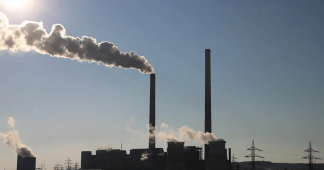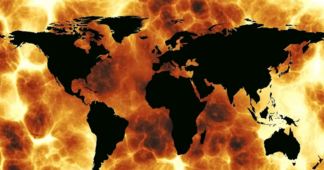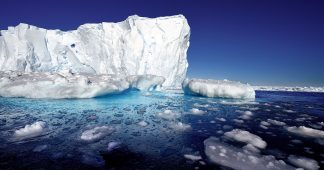“Allowing any new fossil fuel projects, more fracking, and [liquefied natural gas] is an unspeakable climate crime.”
By Julia Conley
Driven primarily by human activities including fossil fuel extraction, methane levels in the atmosphere had their fourth-largest annual increase in 2022, the National Oceanic and Atmospheric Administration reported Thursday.
Scientists detected 1,911.9 parts per billion (ppb) of methane in the atmosphere last year, indicating a rise of 14 ppb. The level rose by 17.75 ppb in 2021 and 15.20 ppb the previous year.
Benjamin Poulter, a scientist with the National Aeronautics and Space Administration (NASA), told the Associated Press that researchers are “confident that over half of the methane emissions are coming from human activities like oil and gas extraction, agriculture, waste management, and landfills.”
Methane can trap about 87 times more heat than carbon dioxide in its first two decades in the atmosphere.
Responding to NOAA’s report on atmospheric levels of carbon dioxide, methane, and nitrous oxide, Sierra Club campaigner Jens Wieting said that “allowing any new fossil fuel projects, more fracking, and [liquefied natural gas] is an unspeakable climate crime.”
Methane levels in the atmosphere now more than 2.5x their pre-industrial level. The oil & gas sector is the largest industrial source of methane. Allowing any new fossil fuel projects, more #fracking & #LNG is an unspeakable #climatecrime #bcpoli #cdnpoli https://t.co/Wlbj3Gg6xw
— Jens Wieting (@JensWieting) April 6, 2023
About 26% of the planetary heating that is attributed to human activity is caused by methane emissions from sources such as landfills, livestock, and oil and gas extraction, Duke University professor Drew Shindell told the AP Thursday.
Experts also warn that fossil fuel emissions have led to a feedback loop in which the planet itself is releasing more methane due to hotter conditions.
The story of methane's rise continues to focus on sources, but carbon monoxide from wildfires, leaking hydrogen, covid-19 emission reductions, changes in shipping fuels and loss of the forest sink are all contributing to existing methane persisting longer.https://t.co/8obq4yrFFv
— Prof. Eliot Jacobson (@EliotJacobson) April 6, 2023
“If this rapid rise is wetlands and natural systems responding to climate change, then that’s very frightening because we can’t do much to stop it,” Shindell told the AP. “If methane leaks from the fossil fuels sector, then we can make regulations. But we can’t make regulations on what swamps do.”
Policymakers must take action to cut the methane emissions that can be reduced, said NOAA.
“The time is now,” said NOAA Administrator Rick Spinrad in a statement, “to address greenhouse gas pollution and to lower human-caused emissions as we continue to build toward a climate-ready nation.”
We remind our readers that publication of articles on our site does not mean that we agree with what is written. Our policy is to publish anything which we consider of interest, so as to assist our readers in forming their opinions. Sometimes we even publish articles with which we totally disagree, since we believe it is important for our readers to be informed on as wide a spectrum of views as possible.











